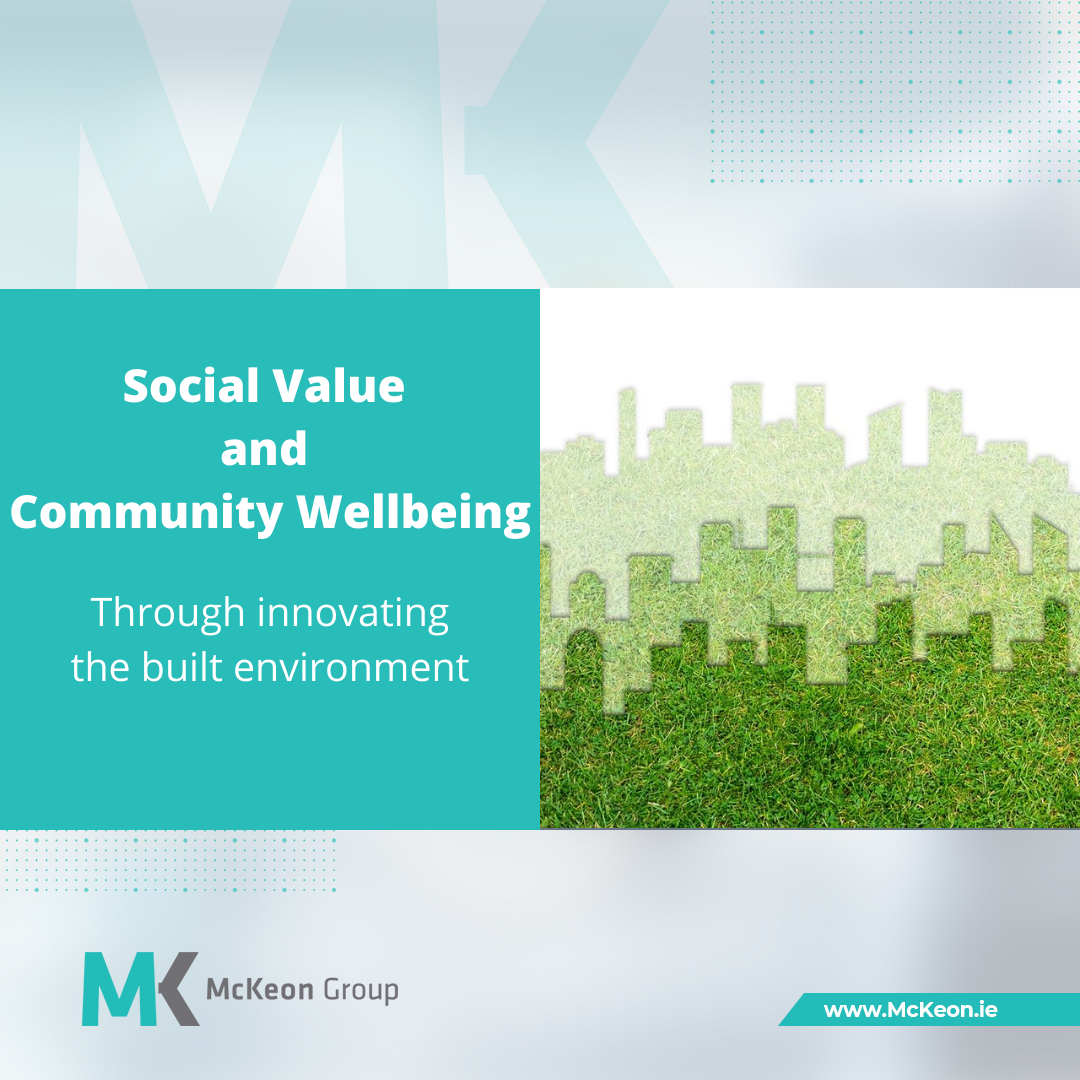Through innovating the built environment
Earlier this week, the Construction Sector Group, or CSG, for ‘Innovation and Digital Adoption’ published its Sustainability Consultation Group Report. The scope of the report was to outline the key research areas for disruptive and scalable innovation in sustainability, carbon reduction and climate action across Ireland’s construction industry, with a focus on supporting increased construction activity. In the course of research, 100 of the industry’s key stakeholders were surveyed under the themes of Decarbonisation, Circular Built Environment, Climate Change Resilience, and Social Value & Community Wellbeing. The outcome of this survey influenced the initial proposals for research and innovation projects.
Given Ireland’s current housing crisis and the persistent societal challenges faced, a key area of focus for the CSG is built environment innovation that will ensure social value and community wellbeing. Initial proposals aim to protect human health and wellbeing, while supporting local economies and increasing community engagement.
Under this theme, the majority of people surveyed believe that smart mobility and multifunctional or adaptable streets are the most important innovation required. The financial value of vegetation, placemaking and urban design was also seen as a key priority, along with the digital mapping of air pollution, identification of sources and mitigation initiatives.
Specific proposals for research and innovation include social and environmental post-occupancy evaluation methodology for public buildings and projects. This entails researching suitable POE methodologies that will capture the social and environmental performance of all public buildings and projects, both existing and newly built assets. It is intended that the data be collated and used as ‘lessons learned’ for future projects. Currently, POE in public buildings is only conducted for operational energy. According to the report, there is a need to put in place a system for capturing the in-use performance of these projects and their contribution to community health and well-being, in the context of Ireland 2040 and Housing for All ambitions.
Another specific proposal involves researching successful models for community driven planning processes. This will involve a review of local and international best practice examples of community driven planning processes and then the possible creation of digital tools for better communication and participation, and for implementation of a plan for enhanced community participation with local authorities. It was acknowledged by the report that digitalisation opens up an opportunity for greater community engagement in planning, with many international cities now using digital models to test scenarios and proposed developments with input from residents.
Encouraging biodiversity across the built environment is another proposed area of research and innovation. This might involve the introduction of a ‘green area ratio’ for proposed developments. A health/cost benefit analysis of increased biodiversity in Irish towns and cities is encouraged. The report concludes that introducing a green area ratio requirement into Irish planning would encourage healthier and more resilient communities.
We look forward to seeing how these important industry research projects progress and to contributing through our in-house Innovation Boost team.
About McKeon Group:
Established in 1950, this year marks the 70th anniversary of McKeon Group, which remains a family business. ISO certified for more than two decades, McKeon Group offers expert construction, fitout and building services. The Group delivers projects, services and maintenance across a range of sectors for State, local authority, FDI and private clients. For more information, contact McKeon.ie


